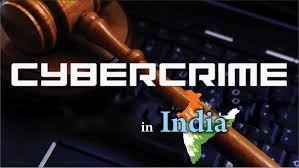On November 30, when the world was enjoying the Football World Cup in Qatar, an artificial tool named ChatGPT made its debut in the world.
This new system can write content that is very accurate and appears to be written by humans. This new tool has emerged as a threat to Google and the situation is such that even Gmail’s founder Paul had said some time ago that this tool can destroy Google in two years.
At present, some shortcomings can be seen in this program but with time this tool will become smarter. Those who like it are praising it but some people are also afraid of this new tool.
If you read reviews of ChatGPT on the Internet, you will find the word ‘threat’ mentioned again and again. Many people believe that this program is copying the human brain rapidly.
According to a recent article published in the American newspaper New York Times, the program is expected to have an impact on learning, education, digital security, work and even democracy.
What is ChatGPT?
ChatGPT is actually a chatbot that can give written and almost accurate answers to many of your questions. This chatbot can also give advice on your personal problems.
The possibilities of creating content through it are immense.
For example, it can explain a complex but delicious recipe to you and can also create a new version of the same recipe instantly. It can help you find a job. It can help you write poems, academic papers and letters to special friends.
ChatGPT answers your every question in a few moments. For example, you tell this chatbot to write a poem in Shakespeare’s style on the subject of Artificial Intelligence.
You will get this poem written in a few moments. There can be debate on the level of the poem but not on the speed of writing it.
ChatGPT is available in almost 100 languages but it is most accurate in English.
For example, when we asked to write a poem about Delhi on ChatGPT, the difference in the results and language of Hindi and English was clearly visible. You can see for yourself in the picture below.
This system was developed by a company named OpenAI in the year 2015 by Sam Altman and Elon Musk. Elon Musk separated from it in the year 2018.
Within five days of its launch, ChatGPT had one million users. The questions and answers of the chatbot with the users are used to improve this program.
OpenAI says that the use of this chatbot will be free for everyone and it will be available to everyone during testing and research.
With this statement of the company, people started speculating that in future OpenAI will start charging money for the use of ChatGPT.
The company has also said that during testing and research, the software can sometimes give wrong and misleading information. The company has also said that the data history of the chatbot is limited to 2021 only.
Challenge to Google’s monopoly?
Many people are calling it a challenge to Google’s monopoly in gathering information on the Internet, but this system is still making serious mistakes.
For example, this chatbot was asked how many Indians have won Oscar awards so far? In response to this, the chatbot wrote – Bhanu Athaiya is the only Indian to win an Oscar till the year 2021.
But as you and I know, many other Indians have won Oscar awards.
Such AI programs store a lot of data. ChatGPT’s focus is on answering in words and conversation style. This chatbot uses algorithms to guess how to write a sentence in the best way.
These are also called Large Language Models (LAM).
Professor Alvaro Machado Dias of the University of Sao Paulo is a neuroscientist. He says that during the creation of such a chatbot, many simple questions are asked to it. Like – what is a cylinder?
Then the technicians give a detailed answer to this question.
“Even after this, if the answer of the chatbot is not logical, then the correct answer is fed into the system. This is done with many questions.”
ChatGPT learns to speak exactly like humans.
Machado Dias says that this is what makes it special because it has become an expert in understanding languages.
Engineers are working day and night to make it smarter.
Professor Dias says, “Actually engineers check the answers given by the algorithm and try to improve it by giving feedback to the program. The answer to your question is in a text format and it is quite serious.”
ChatGPT has also been trained to accept mistakes. This program corrects misconceptions and rejects irrelevant questions.
But a professor from the University of California used this system to create a programming code according to which only white and Asian men can become good scientists.
OpenAI has admitted that at present the program can give problematic answers in response to the instructions given to it and the data collected during testing will be used to further strengthen the system.
Is this a threat to creativity?
Alarm bells have started ringing in jobs that depend on words and sentences.
Like journalism. If the system improves further, the number of jobs for journalists will decrease and there may come a time when they will not be needed at all because every article will be written by a chatbot.
ChatGPT’s ability to write code can raise questions about another sector. And that sector is – computer programming.
But the sector that is most worrying is – education.
In New York, students were so tempted to do their assignments through ChatGPT that the entire city immediately banned ChatGPT on all schools and public devices.
OpenAI is also trying to give a different identity to the content generated by its chatbot. There are algorithms that can tell quite accurately whether the text is written by a chatbot or a person.
Apart from copying from a chatbot and pasting it into your homework and assignments, there are many other fears that cause fear in the field of education.
For example, what if a student is asked to write a complex essay?
Professor Dias of the University of Sao Paulo says, “I am worried about the mechanization of thoughts. It is like overturning the way we understand the world.”
“This will be the most important event of change in mindset in modern history. It is also worth noting that the human brain is shrinking rapidly. The reason for this is the development of technology.”
Half human and half machine
Martha Gabriel, author of the book Artificial Intelligence: From Zero to Metaverse and professor at the Pontifical Catholic University of Rio Grande, also believes that we will have to change rapidly with changing times.
Martha Gabriel says, “The main difference is that now answers do not matter, questions have become important. You should know how to ask the right questions and for this your mind will have to think and work hard.”
Yuri Lima, a researcher at the Federal University of Brazil, says that the new technology will turn students into cyborgs (half human and half machine).
Yuri Lima says, “This new technology demands that teachers also learn to use it properly.”
This was about education and students. But there is another big concern. That is the creativity of humans and content creation.
Within ten days of the availability of this system, a designer in San Francisco had prepared an illustrated book for children within two days.
Apart from ChatGPT, the designer also took help from a program called MidJourney through which pictures were collected.
Professor Machado Dias says that creativity requires extraordinary talent, but things created with the help of algorithms will reduce the tendency of humans to be creative.
Read Also:
- ChatGPT: The Man Who Dreamed Of Changing The World Of Artificial Intelligence
- ChatGPT Is No Longer A Common Concern: It Can Be A Threat To Your Privacy, Know The 6 Big Threats Associated With ChatGPT
- ChatGPT Worldwide: Users From India And US Dealing With Maximum Problems, Says Openai We Are Investigating The Problem
- How To Use Chatgpt On Whatsapp? Know Step By Step
- Chatgpt Down Due To Ghibli Trend: Users Could Not Access For About 1.5 Hours; Now Will Be Able To Generate Only 3 Images In A Day
- How Can I Support Students To Use Chatgpt To Support Their Learning
- How Can Artificial Intelligence Affect Elections
- Artificial Intelligence Can Pose A Threat To The End Of Human Civilization, Experts Warn
- How Can Deepfake Become A Threat To People
- Artificial Intelligence: How Fraud Happens Through Voice, How To Avoid It
- How Artificial Intelligence Turned A Ukrainian You Tuber Into A Russian
- Use Artificial Intelligence In Such A Way That Your Thinking Ability Does Not Decrease
- How Correct Is The Fear Of Getting Jobs From Artificial Intelligence In India
- What Anil Saini Wants From Artificial Intelligence Platforms: A Global Appeal To Use AI Against Digital Scams
- Notes About Artificial Intelligence (AI) From Anant Maheshwari, President, Microsoft India
- Artificial Intelligence (AI) In The Banking Industry And Customers Perspective
- Notes About Artificial Intelligence (AI) From Dr. A S Ramasastri, Director, IDRBT
- Artificial Intelligence (AI) In The Banking Industry And Customers Perspective
- Artificial Intelligence In Indian Banking And The Transformation In The Digital Age
- Strong And Weak Artificial Intelligence
- The General Artificial Intelligence Problem Solver
- What Is Artificial Intelligence
- Introduction About Artificial Intelligence
- Will Artificial Intelligence Take Over Our Jobs A Human Perspective On The Future Of Employment
- Artificial Intelligence: Impact On Employment And Workforce
- Artificial Intelligence In Mobiles
- Artificial Intelligence In Agriculture
- Artificial Intelligence (AI)-Based Smart Agriculture For Sustainable Development
- Challenges Of Using Artificial Intelligence (AI) In Education
- Artificial Intelligence (AI) In Medical Diagnosis
- Artificial Intelligence In Agriculture – Paving Way Towards Future Farming
- Application Of Artificial Intelligence (AI) In Agriculture: An Indian Perspective






